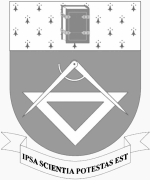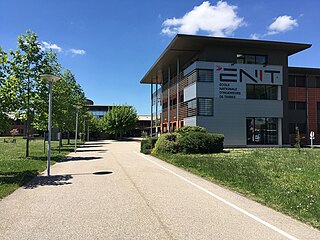Related Research Articles
A bachelor's degree or baccalaureate is an undergraduate academic degree awarded by colleges and universities upon completion of a course of study lasting three to six years. The two most common bachelor's degrees are the Bachelor of Arts (BA) and the Bachelor of Science. In some institutions and educational systems, certain bachelor's degrees can only be taken as graduate or postgraduate educations after a first degree has been completed, although more commonly the successful completion of a bachelor's degree is a prerequisite for further courses such as a master's or a doctorate.

Undergraduate education is education conducted after secondary education and before postgraduate education. It typically includes all postsecondary programs up to the level of a bachelor's degree. For example, in the United States, an entry-level university student is known as an undergraduate, while students of higher degrees are known as graduate students. Upon completion of a number of required and elective courses as part of an undergraduate program, the student would earn the corresponding degree. In some other educational systems, undergraduate education is postsecondary education up to and including the level of a master's degree; this is the case for some science courses in Britain and some medicine courses in Europe.
An internship is a period of work experience offered by an organization for a limited period of time. Once confined to medical graduates, internship is used practice for a wide range of placements in businesses, non-profit organizations and government agencies. They are typically undertaken by students and graduates looking to gain relevant skills and experience in a particular field. Employers benefit from these placements because they often recruit employees from their best interns, who have known capabilities, thus saving time and money in the long run. Internships are usually arranged by third-party organizations that recruit interns on behalf of industry groups. Rules vary from country to country about when interns should be regarded as employees. The system can be open to exploitation by unscrupulous employers.
A diploma is a document awarded by an educational institution testifying the recipient has graduated by successfully completing their courses of studies. Historically, it has also referred to a charter or official document of diplomacy.
A Bachelor of Engineering (BE, BEng or BAI) or a Bachelor of Science in Engineering (BSc (Eng) or BSE) is an academic undergraduate degree awarded to a student after three to five years of studying engineering at an accredited college or university.
A Doctor of Pharmacy is a professional doctorate in pharmacy. In some countries, it is a doctoral degree to practice the profession of pharmacy or to become a clinical pharmacist. In many countries they are allowed to practice independently and can prescribe drugs directly to patients. A PhD program has significant experiential or clinical education components in introductory and advanced levels for the safe and effective use of drugs. Experiential education prepares graduates to be practice-ready, as they already have spent a significant amount of time training in areas of direct patient care and research.
An institute of technology is an institution of tertiary education that specializes in engineering, technology, applied science, and natural sciences.
Business education is a branch of education that involves teaching the skills and operations of the business industry. This field of education occurs at multiple levels, including secondary and higher education

Nanyang Academy of Fine Arts (NAFA); is a publicly-funded post-secondary arts institution, planned to be a constituent college of the University of the Arts Singapore (UAS) by 2024 along with the LASALLE College of the Arts in Singapore.
A university college in Denmark, Norway, Sweden and Finland is an independent institution that provides tertiary education and quaternary education (PhD). Most of these institutions traditionally had an emphasis on less academic and more vocational programmes such as teacher or nursing education as well as shorter technical education; historically, these institutions were somewhat similar to a Fachhochschule in Germany and to a Polytechnic in the United Kingdom. The term is also used for some specialized universities.
Engineering education is the activity of teaching knowledge and principles to the professional practice of engineering. It includes an initial education, and any advanced education and specializations that follow. Engineering education is typically accompanied by additional postgraduate examinations and supervised training as the requirements for a professional engineering license. The length of education, and training to qualify as a basic professional engineer, is typically 5 years, with 15–20 years for an engineer who takes responsibility for major projects.

The Gheorghe Asachi Technical University is a public university located in Iași, Romania. Classified by the Ministry of Education as an advanced research and education university, it has the oldest tradition in Romania in engineering education. Gheorghe Asachi Technical University is a member of the Romanian Alliance of Technical Universities (ARUT).
The basic requirement for pharmacists to be considered for registration is often an undergraduate or postgraduate pharmacy degree from a recognized university. In many countries, this involves a four- or five-year course to attain a bachelor of pharmacy or master of pharmacy degree.

The École nationale d'Ingénieurs de Tarbes - ENIT is a French school of engineering leading to the French “Diplôme d'Ingénieur” under the authority of the French Ministry of Education and Research and part of the National Polytechnic Institute of Toulouse (INPT). Founded in 1963, about 200 students graduate from the ENIT each year.
ENIT is part of the ENI group, which is a network of 4 French public engineering schools.
A polytechnic was a tertiary education teaching institution in England, Wales and Northern Ireland offering higher diplomas, undergraduate degree and post graduate education that was governed and administered at the national level by the Council for National Academic Awards. At the outset, the focus of polytechnics was on STEM subjects with a special emphasis on engineering. After the passage of the Further and Higher Education Act 1992 they became independent universities which meant they could award their own degrees. The comparable institutions in Scotland were collectively referred to as Central Institutions.

A Bachelor of Science is a bachelor's degree awarded for programs that generally last three to five years.

Physical therapy education varies greatly from country to country. Worldwide, physical therapy training ranges from basic work site education in hospitals and outpatient clinics to professional doctoral degree and masters programs.
Alternative pathways in education are alternative means of obtaining educational qualifications, other than the traditional means of gaining access to or completing the required study to obtain the educational qualifications.

Arts et Métiers ParisTech is a French engineering and research institute of higher education. It is a grande école, recognized for leading in the fields of mechanics and industrialization. Founded in 1780, it is among the oldest French institutions and is one of the most prestigious engineering schools in France. It has been consistently ranked among the top ten French engineering schools and was ranked fifth in France for Mechanical Engineering in the Shanghai ranking 2018.

Turin Polytechnic University in Tashkent is a non-profit public higher education institution in Uzbekistan. Turin Polytechnic University in Tashkent was established in 2009 in a partnership with Politecnico di Torino, Italy. TTPU's main objective is to prepare specialists for the automotive, mechanical engineering, electrical industries and companies in the field of civil engineering and construction, and for the power industry, in accordance with the educational programs adopted in collaboration with Politecnico di Torino, Italy.
References
- 1 2 3 4 Davis, Martin C. (1979). The council for national academic awards 1964-74: a study of a validating agency (PDF) (thesis). Loughborough University.
- ↑ "Chapter 12 Developments in the 1950s and 1960s". technicaleducationmatters.org. Retrieved 2018-04-28.
- 1 2 "Design's angel of the North". the Guardian. 2004-04-03. Retrieved 2018-04-28.
- 1 2 "Rick Dickinson:The Enigma of Design(part 1)". The Polymath Perspective. Retrieved 28 April 2018.
- ↑ "Sandwich Courses, United Kingdom", Journal of Cooperative Education, 26 (2), 1990
- ↑ Syer, Jonathan (2012-04-30). "Why aren't more students doing sandwich courses?". the Guardian. Retrieved 2018-04-28.
- ↑ "Why are sandwich courses seeing a resurgence?". Times Higher Education (THE). 2016-05-01. Retrieved 2018-04-30.